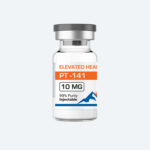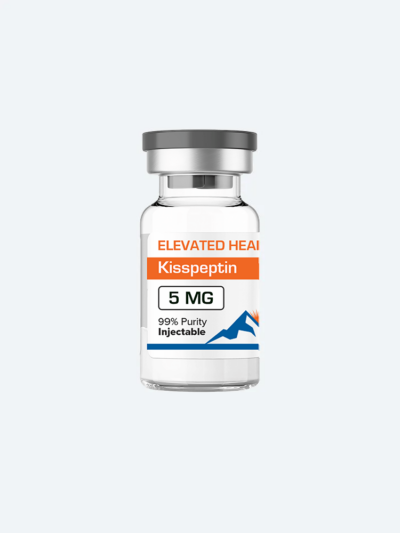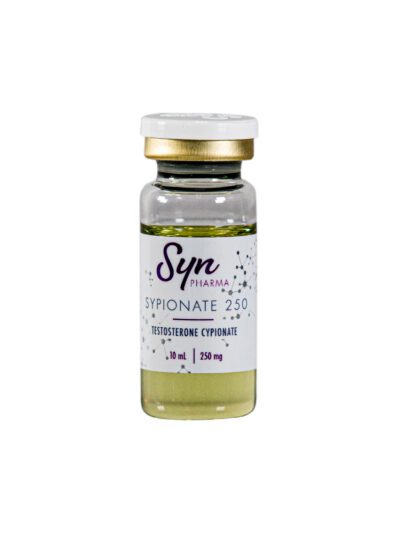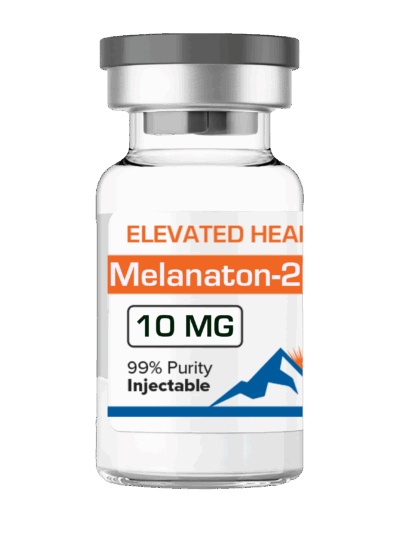No products in the cart.
Back

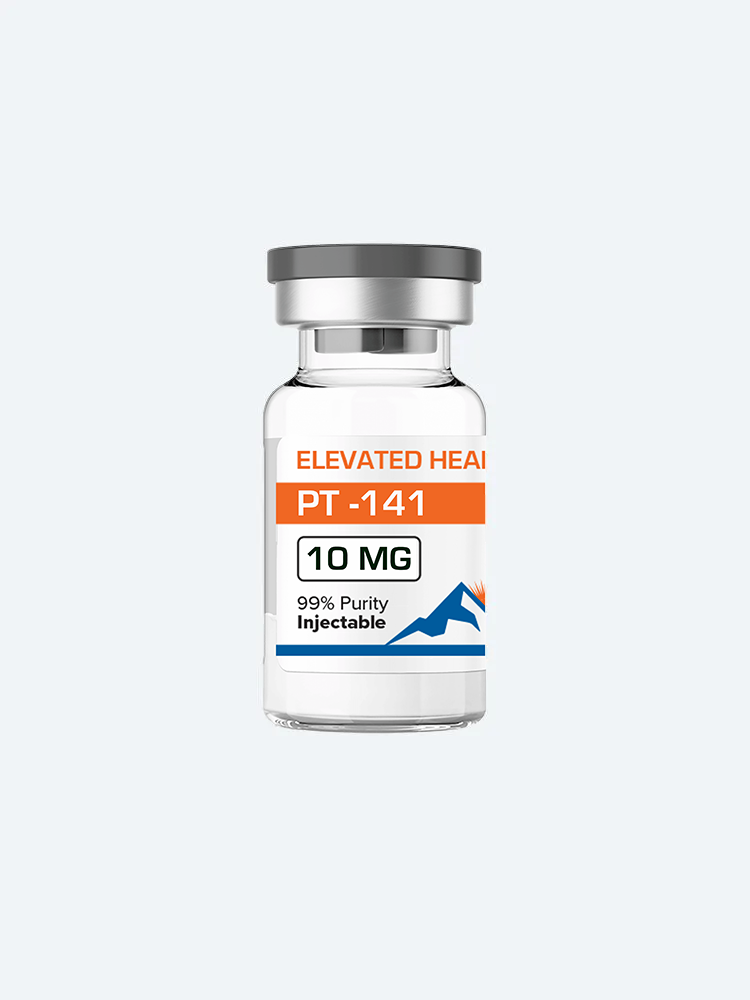
In stock
PT 141
Erectile Function, Fertility, Peptides$70.00
SKU: 29045-SB-9-52
10mg Injectable Peptide
Ingredients – 10 mg PT-141 (Bremelanotide) Peptide
Indications – libido enhancing, sexual performance and desire enhancing, erectile function
Dosage – 1-2 mg 45 minutes prior to anticipated sexual activity via injection or nasal spray
PT-141 provides numerous benefits for individuals looking to enhance their sexual desire and improve sexual performance. Men who are struggling with erectile dysfunction may find that PT-141 enhances the effects of other treatments by improving sexual arousal and increasing blood flow to the genital area. Women who are dealing with issues related to low sexual desire or arousal can also benefit from PT-141’s ability to increase blood flow and enhance sexual desire. Whether you’re looking to improve your sexual performance, increase libido, or address performance anxiety, PT-141 provides a comprehensive solution for enhancing your sexual health and intimacy.
- Description
Overview
PT-141, also known as bremelanotide, is a modified synthetic derivative of alpha-melanocyte-stimulating hormone (α-MSH), a peptide of the melanocortin family that regulates skin pigmentation, feeding behavior, and sexual activity, among its other functions.
As an analogue of α-MSH, PT-141 acts on the melanocortin receptors (MCRs), which are found predominantly in the skin and central nervous system and cause an increase in pigmentation by activating melanocytes. However, MCRs are also associated with effects on sexual desire and appetite. PT-141 strongly engages MC1R, MC3R, and MC4R, the latter of which plays a role in modulating sexual desire.
One of the primary benefits of PT-141 is its ability to stimulate the melanocortin receptors in the brain, leading to increased sexual arousal and desire. By targeting these receptors, PT-141 directly influences the central nervous system, promoting sexual desire and reducing performance anxiety. This makes PT-141 an excellent option for individuals who are dealing with low libido or psychological factors that impact sexual performance.
Following a subcutaneous injection or nasal atomisation of PT-141, maximal effects occur with a range of 30 minutes to one hour. In the realm of male sexual desire, this translates to a virtually on-demand erection.
Treatment of Erectile dysfunction
While PT-141 is not indicated to treat erectile dysfunction (ED), several small-scale studies have found that it may be beneficial to male patients with ED who do not respond to sildenafil (Viagra).
A 2003 phase 1 randomized double-blind placebo-controlled trial involving 24 healthy male subjects without erectile dysfunction found that test subjects who received intranasal doses of PT-141 (4 to 20 mg) experienced “significantly increased duration of rigid erections of 140 minutes compared to 22 minutes in the placebo group”.
A 2004 study involving fewer than 400 patients found that doses of 1mg of PT-141 (bremelanotide) could produce a statistically significant “erectile response”. The safety and efficacy of PT-141 in test subjects with mild to moderate ED were investigated in a phase II study. Results showed a 3-fold increase in erectile activity following 2mg intranasal administration of PT-141.
A 2008 study involving intranasal bremelanotide spray found that it could help men achieve an erection suitable for penetrative sex when administered 45 minutes prior to intercourse [9].
These findings suggest that PT-141 may act as an alternative ED treatment for subjects who do not respond to sildenafil, a potentiality that merits further research.
PT-141 Peptide and Arousal
The potential activation of the MC4R by PT-141 may also upregulate the production of vasodilators like nitric oxide (NO) in penile tissues, leading to improved erection potential, as suggested by research. The peptide is posited to be a metabolite of Melanotan-2 (MT-II), and both appear to activate the same receptors. For example, it has been posited that melanocortin agonists might lead to concentration-related increases in cavernosal pressure.
The role of the NO-cyclic GMP-dependent pathway in relation to the melanocortin agonists-induced increases in cavernosal pressure. This was done by performing a bilateral transection of the pudendal nerves and inhibiting NO synthase using L-NAME. The results indicate that either removing the pudendal nerves or pretreating with L-NAME may negate the increases in intracavernosal pressure that melanocortin agonists likely induced in the anesthetized murine models. From the gathered data, it was tentatively inferred that the activation of central melanocortin receptors by melanocortin agonists might lead to an increase in cavernosal pressure, probably achieved through the neuronal release of NO.
References:
- Pfaus, J., Giuliano, F., & Gelez, H. (2007). Bremelanotide: an overview of preclinical CNS effects on female sexual function. The journal of sexual medicine, 4 Suppl 4, 269–279. https://doi.org/10.1111/j.1743-6109.2007.00610.x
- National Center for Biotechnology Information (2023). PubChem Compound Summary for CID 9941379, Bremelanotide. Retrieved August 10, 2023 from https://pubchem.ncbi.nlm.nih.gov/compound/Bremelanotide.
- Molinoff, P. B., Shadiack, A. M., Earle, D., Diamond, L. E., & Quon, C. Y. (2003). PT-141: a melanocortin agonist for the treatment of sexual dysfunction. Annals of the New York Academy of Sciences, 994, 96–102. https://doi.org/10.1111/j.1749-6632.2003.tb03167.x
- Renquist, B. J., Lippert, R. N., Sebag, J. A., Ellacott, K. L., & Cone, R. D. (2011). Physiological roles of the melanocortin MC₃ receptor. European journal of pharmacology, 660(1), 13–20. https://doi.org/10.1016/j.ejphar.2010.12.025
- Adan, R. A., Tiesjema, B., Hillebrand, J. J., la Fleur, S. E., Kas, M. J., & de Krom, M. (2006). The MC4 receptor and control of appetite. British journal of pharmacology, 149(7), 815–827. https://doi.org/10.1038/sj.bjp.0706929
- Pfaus, J. G., Shadiack, A., Van Soest, T., Tse, M., & Molinoff, P. (2004). Selective facilitation of sexual solicitation in the female rat by a melanocortin receptor agonist. Proceedings of the National Academy of Sciences of the United States of America, 101(27), 10201–10204. https://doi.org/10.1073/pnas.0400491101
- Vemulapalli, R., Kurowski, S., Salisbury, B., Parker, E., & Davis, H. (2001). Activation of central melanocortin receptors by MT-II increases cavernosal pressure in rabbits by the neuronal release of NO. British journal of pharmacology, 134(8), 1705–1710. https://doi.org/10.1038/sj.bjp.0704437
- Thurston, L., Hunjan, T., Mills, E. G., Wall, M. B., Ertl, N., Phylactou, M., Muzi, B., Patel, B., Alexander, E. C., Suladze, S., Modi, M., Eng, P. C., Bassett, P. A., Abbara, A., Goldmeier, D., Comninos, A. N., & Dhillo, W. S. (2022). Melanocortin 4 receptor agonism enhances sexual brain processing in women with hypoactive sexual desire disorder. The Journal of clinical investigation, 132(19), e152341. https://doi.org/10.1172/JCI152341
- National Center for Biotechnology Information (2021). PubChem Substance Record for SID 319341034, 189691-06-3, Source: ToxPlanet. Retrieved October 21, 2021 from https://pubchem.ncbi.nlm.nih.gov/substance/319341034.
- LiverTox: Clinical and Research Information on Drug-Induced Liver Injury [Internet]. Bethesda (MD): National Institute of Diabetes and Digestive and Kidney Diseases; 2012–. Bremelanotide. 2021 Aug 20. PMID: 34436837.
- Dhillon S, Keam SJ. Bremelanotide: First Approval. Drugs. 2019 Sep;79(14):1599-1606. doi: 10.1007/s40265-019-01187-w. PMID: 31429064.
- Mayer D, Lynch SE. Bremelanotide: New Drug Approved for Treating Hypoactive Sexual Desire Disorder. Ann Pharmacother. 2020 Jul;54(7):684-690. doi: 10.1177/1060028019899152. Epub 2020 Jan 1. PMID: 31893927.
- Bremelanotide (Vyleesi) for hypoactive sexual desire disorder. Med Lett Drugs Ther. 2019 Jul 29;61(1577):114-116. PMID: 31381550.
- Molinoff PB, Shadiack AM, Earle D, Diamond LE, Quon CY. PT-141: a melanocortin agonist for the treatment of sexual dysfunction. Ann N Y Acad Sci. 2003 Jun;994:96-102. doi: 10.1111/j.1749-6632.2003.tb03167.x. PMID: 12851303.
- Rosen RC, Diamond LE, Earle DC, Shadiack AM, Molinoff PB. Evaluation of the safety, pharmacokinetics and pharmacodynamic effects of subcutaneously administered PT-141, a melanocortin receptor agonist, in healthy male subjects and in patients with an inadequate response to Viagra. Int J Impot Res. 2004 Apr;16(2):135-42. doi: 10.1038/sj.ijir.3901200. PMID: 14999221.
- Diamond LE, Earle DC, Rosen RC, Willett MS, Molinoff PB. Double-blind, placebo-controlled evaluation of the safety, pharmacokinetic properties and pharmacodynamic effects of intranasal PT-141, a melanocortin receptor agonist, in healthy males and patients with mild-to-moderate erectile dysfunction. Int J Impot Res. 2004 Feb;16(1):51-9. doi: 10.1038/sj.ijir.3901139. PMID: 14963471.
- Safarinejad MR, Hosseini SY. Salvage of sildenafil failures with bremelanotide: a randomized, double-blind, placebo controlled study. J Urol. 2008 Mar;179(3):1066-71. doi: 10.1016/j.juro.2007.10.063. Epub 2008 Jan 18. PMID: 18206919.
- Pfaus JG, Sadiq A, Spana C, Clayton AH. The neurobiology of bremelanotide for the treatment of hypoactive sexual desire disorder in premenopausal women. CNS Spectr. 2021 Jan 18:1-9. doi: 10.1017/S109285292100002X. Epub ahead of print. PMID: 33455598.
- Clayton, A. H., Althof, S. E., Kingsberg, S., DeRogatis, L. R., Kroll, R., Goldstein, I., Kaminetsky, J., Spana, C., Lucas, J., Jordan, R., & Portman, D. J. (2016). Bremelanotide for female sexual dysfunctions in premenopausal women: a randomized, placebo-controlled dose-finding trial. Women’s health (London, England), 12(3), 325–337. https://doi.org/10.2217/whe-2016-0018
- Kingsberg SA, Clayton AH, Portman D, Williams LA, Krop J, Jordan R, Lucas J, Simon JA. Bremelanotide for the Treatment of Hypoactive Sexual Desire Disorder: Two Randomized Phase 3 Trials. Obstet Gynecol. 2019 Nov;134(5):899-908. doi: 10.1097/AOG.0000000000003500. PMID: 31599840; PMCID: PMC6819021.
- (2021). Retrieved 10 October 2021, from https://www.accessdata.fda.gov/drugsatfda_docs/label/2019/210557s000lbl.pdf
- King SH, Mayorov AV, Balse-Srinivasan P, Hruby VJ, Vanderah TW, Wessells H. Melanocortin receptors, melanotropic peptides and penile erection. Curr Top Med Chem. 2007;7(11):1098-1106. PMID: 17584130; PMCID: PMC2694735.
- Simon JA, Kingsberg SA, Portman D, Williams LA, Krop J, Jordan R, Lucas J, Clayton AH. Long-Term Safety and Efficacy of Bremelanotide for Hypoactive Sexual Desire Disorder. Obstet Gynecol. 2019 Nov;134(5):909-917. doi: 10.1097/AOG.0000000000003514. PMID: 31599847; PMCID: PMC6819023.
- Althof S, Derogatis LR, Greenberg S, Clayton AH, Jordan R, Lucas J, Spana C. Responder Analyses from a Phase 2b Dose-Ranging Study of Bremelanotide. J Sex Med. 2019 Aug;16(8):1226-1235. doi: 10.1016/j.jsxm.2019.05.012. Epub 2019 Jul 2. PMID: 31277966.
- Sure! Here are the references without the HTML code:
- M. Sandrock, A. Schulz, C. Merkwitz, T. Schöneberg, K. Spanel-Borowski, and A. Ricken, “Reduction in corpora lutea number in obese melanocortin-4-receptor-deficient mice,” Reprod. Biol. Endocrinol. RBE, vol. 7, p. 24, Mar. 2009.
- R. C. Rosen, L. E. Diamond, D. C. Earle, A. M. Shadiack, and P. B. Molinoff, “Evaluation of the safety, pharmacokinetics and pharmacodynamic effects of subcutaneously administered PT-141, a melanocortin receptor agonist, in healthy male subjects and in patients with an inadequate response to Viagra,” Int. J. Impot. Res., vol. 16, no. 2, pp. 135–142, Apr. 2004.
- H. Wessells, V. J. Hruby, J. Hackett, G. Han, P. Balse-Srinivasan, and T. W. Vanderah, “Ac-Nle-c[Asp-His-DPhe-Arg-Trp-Lys]-NH2 induces penile erection via brain and spinal melanocortin receptors,” Neuroscience, vol. 118, no. 3, pp. 755–762, 2003.
- A.-S. Rössler, J. G. Pfaus, H. K. Kia, J. Bernabé, L. Alexandre, and F. Giuliano, “The melanocortin agonist, melanotan II, enhances proceptive sexual behaviors in the female rat,” Pharmacol. Biochem. Behav., vol. 85, no. 3, pp. 514–521, Nov. 2006.
- M. R. Safarinejad and S. Y. Hosseini, “Salvage of sildenafil failures with bremelanotide: a randomized, double-blind, placebo-controlled study,” J. Urol., vol. 179, no. 3, pp. 1066–1071, Mar. 2008.
- A. H. Clayton et al., “Bremelanotide for female sexual dysfunctions in premenopausal women: a randomized, placebo-controlled dose-finding trial,” Womens Health Lond. Engl., vol. 12, no. 3, pp. 325–337, 2016.
- M. K. Miller, J. R. Smith, J. J. Norman, and A. H. Clayton, “Expert opinion on existing and developing drugs to treat female sexual dysfunction,” Expert Opin. Emerg. Drugs, vol. 23, no. 3, pp. 223–230, 2018.
- “AMAG Pharmaceuticals and Palatin Technologies Enter Into Exclusive Licensing Agreement for North American Rights to RekyndaTM (bremelanotide), a Potential Treatment for a Common Female Sexual Disorder – AMAG Pharmaceuticals.” MarketWatch, 2017.
- H. Ji et al., “The Synthetic Melanocortin (CKPV)2 Exerts Anti-Fungal and Anti-Inflammatory Effects against Candida albicans Vaginitis via Inducing Macrophage M2 Polarization,” PLoS ONE, vol. 8, no. 2, Feb. 2013.
- V. Maresca, E. Flori, and M. Picardo, “Skin phototype: a new perspective,” Pigment Cell Melanoma Res., vol. 28, no. 4, pp. 378–389, Jul. 2015.
- L. Feller, R. A. G. Khammissa, B. Kramer, M. Altini, and J. Lemmer, “Basal cell carcinoma, squamous cell carcinoma and melanoma of the head and face,” Head Face Med., vol. 12, p. 11, Feb. 2016.
- A. H. Clayton, S. E. Althof, S. Kingsberg, et al., “Bremelanotide for female sexual dysfunctions in premenopausal women: a randomized, placebo-controlled dose-finding trial.” Womens Health (Lond), vol. 12, no. 3, pp. 325–337, 2016. doi:10.2217/whe-2016-0018.
- T. R. McMillan, M. A. M. Forster, L. I. Short, A. P. Rudecki, D. L. Cline, and S. L. Gray, “Melanotan II, a melanocortin agonist, partially rescues the impaired thermogenic capacity of pituitary adenylate cyclase-activating polypeptide deficient mice,” Exp. Physiol., vol. 106, no. 2, pp. 427–437, Feb. 2021. doi:10.1113/EP088838.
- C. Spana, R. Jordan, and S. Fischkoff, “Effect of bremelanotide on body weight of obese women: Data from two phase 1 randomized controlled trials,” Diabetes Obes. Metab., vol. 24, no. 6, pp. 1084–1093, Jun. 2022. doi:10.1111/dom.14672.
REMINDER TO ALL CUSTOMERS:
Due to their sensitive nature and strict storage requirements: all sales are final on peptides & GH products. We cannot accept returns strictly because of product integrity and safety for all clients. Thank you for your understanding
Related products
- Kisspeptin-10 Peptide$60.00
- Melanotan-2$50.00


